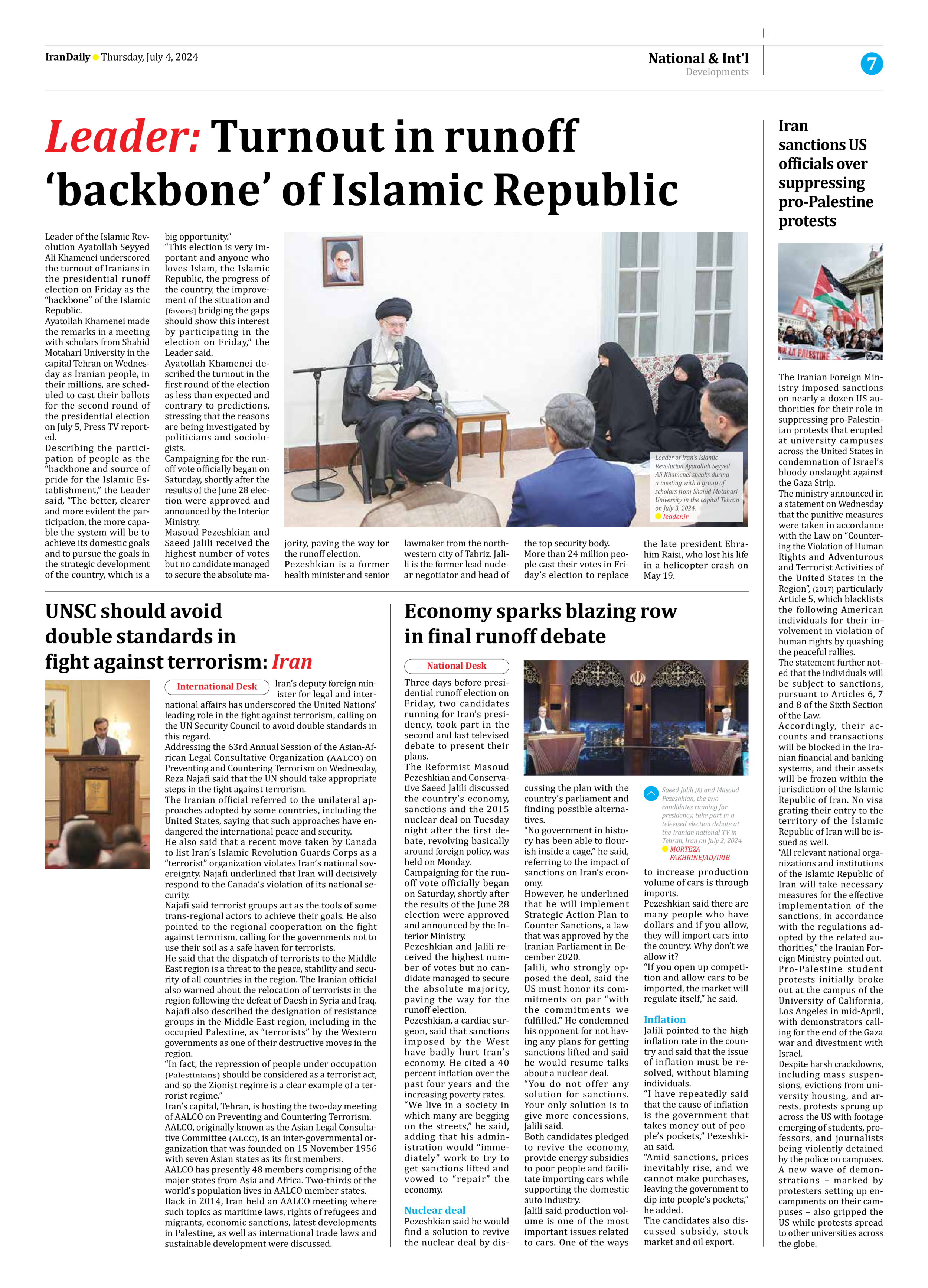
Economy sparks blazing row in final runoff debate
Three days before presidential runoff election on Friday, two candidates running for Iran’s presidency, took part in the second and last televised debate to present their plans.
The Reformist Masoud Pezeshkian and Conservative Saeed Jalili discussed the country’s economy, sanctions and the 2015 nuclear deal on Tuesday night after the first debate, revolving basically around foreign policy, was held on Monday.
Campaigning for the runoff vote officially began on Saturday, shortly after the results of the June 28 election were approved and announced by the Interior Ministry.
Pezeshkian and Jalili received the highest number of votes but no candidate managed to secure the absolute majority, paving the way for the runoff election.
Pezeshkian, a cardiac surgeon, said that sanctions imposed by the West have badly hurt Iran’s economy. He cited a 40 percent inflation over the past four years and the increasing poverty rates.
“We live in a society in which many are begging on the streets,” he said, adding that his administration would “immediately” work to try to get sanctions lifted and vowed to “repair” the economy.
Nuclear deal
Pezeshkian said he would find a solution to revive the nuclear deal by discussing the plan with the country’s parliament and finding possible alternatives.
“No government in history has been able to flourish inside a cage,” he said, referring to the impact of sanctions on Iran’s economy.
However, he underlined that he will implement Strategic Action Plan to Counter Sanctions, a law that was approved by the Iranian Parliament in December 2020.
Jalili, who strongly opposed the deal, said the US must honor its commitments on par “with the commitments we fulfilled.” He condemned his opponent for not having any plans for getting sanctions lifted and said he would resume talks about a nuclear deal.
“You do not offer any solution for sanctions. Your only solution is to give more concessions, Jalili said.
Both candidates pledged to revive the economy, provide energy subsidies to poor people and facilitate importing cars while supporting the domestic auto industry.
Jalili said production volume is one of the most important issues related to cars. One of the ways to increase production volume of cars is through imports.
Pezeshkian said there are many people who have dollars and if you allow, they will import cars into the country. Why don’t we allow it?
“If you open up competition and allow cars to be imported, the market will regulate itself,” he said.
Inflation
Jalili pointed to the high inflation rate in the country and said that the issue of inflation must be resolved, without blaming individuals.
“I have repeatedly said that the cause of inflation is the government that takes money out of people’s pockets,” Pezeshkian said.
“Amid sanctions, prices inevitably rise, and we cannot make purchases, leaving the government to dip into people’s pockets,” he added.
The candidates also discussed subsidy, stock market and oil export.







